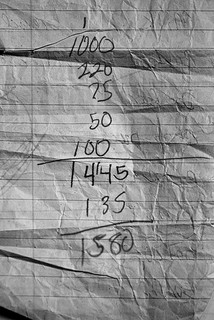 For six-year-olds, the world is full of wonder and they are beginning to learn about academic subjects and disciplines. PBS.org outlined some of the math and science concepts children take in at this age:
For six-year-olds, the world is full of wonder and they are beginning to learn about academic subjects and disciplines. PBS.org outlined some of the math and science concepts children take in at this age:
Math and Spatial Concepts
- At age six, children are able to count up to numbers in the 100s and can count backwards from 20. This is the kind of knowledge that children enjoy showing off and it helps if adults praise these efforts.
- Throughout this year, a child will become more and more skilled at solving addition and subtraction problems--both problems that just give numbers and simple word problems. Parents can provide extra practice by giving them simple math problems that relate to everyday life (e.g. "If there are 10 granola bars in the box and you eat one every day this week, how many will there be left?").
- Children at age six are able to identify the number of sides in basic geometry shapes and they "can combine shapes to create a new one. " (e.g. drawing a triangle on top of a square to create what looks like a house).
- By this time, a child can direct someone around a room or show them which way to go on a simple map. They can also follow clear directions to find a place on a map.
Scientific Discovery
- PBS.org writes, "Scientific discovery for children this age is affected by their tendency to straddle the world between make-believe and reality." Remember that children at this age have vivid imaginations and the things they read and see may also blur the lines between reality and make-believe (talking animals, etc.)
- Safe, hand-on exploration will encourage an interest in science and introduce children to scientific concepts they will learn more about later. At Horizon Education Centers, your child will have a chance to see science in action through food preparation activities, time spent outside in nature and in a host of other ways.
Photo Credit: MStewartPhotography





